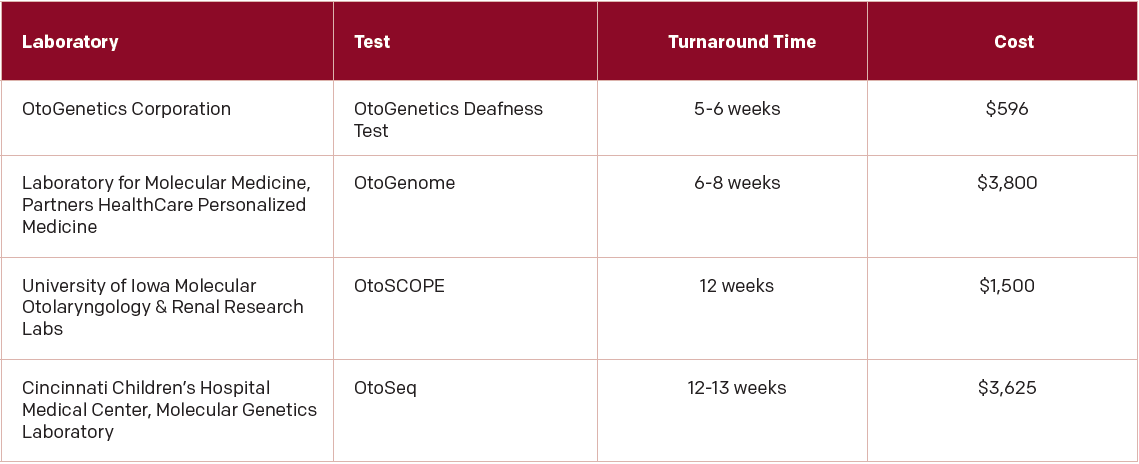Dr. Smith, who practices at one of the research institutions that provides genetic testing using these NGS technologies, emphasized that all otolaryngologists should know that genetic testing has become an integral part of evaluating a patient with sensorineural hearing loss. “Genetic testing should be considered the first test to be ordered after history, physical exam, and audiometric testing,” he emphasized.
Explore This Issue
August 2017This article provides a brief description of genetic testing using the NGS technologies, followed by recommendations on how to integrate genetic testing for hearing loss in clinical practice. Because most of the current evidence and clinical utility of genetic testing for hearing loss is on newborns and infants, the information presented here is largely in this setting.
Next-Generation Sequencing
Instead of looking for specific gene mutations, modern techniques look at multiple genes simultaneously,” said Stephanie Moody-Antonio, MD, an associate professor in the department of otology and neurotology and director of the cochlear implant program at Eastern Virginia Medical School in Norfolk.
Unlike traditional genetic testing, which isolates individual regions of the genome (most often exons) to identify a single gene for sequencing through a method developed by Sanger in 1977, current NGS technologies use strategies that permit a more comprehensive genetic diagnosis of hearing loss in which all known genes related to the condition can be sequenced simultaneously (Otolaryngol Head Neck Surg. 2015;153:175-182). These technologies use whole-exome sequencing (WES), whole-genome sequencing (WGS), or disease-targeted exon capture strategies that are deemed more suitable for genetic analysis of the heterogeneity of hearing loss (Genet Med. 2014;16:347-355).
Although traditional genetic testing has been useful in identifying hearing loss in which one or a limited number of genes are involved—such as identifying a mutation in the connexin 26 gene, one of the most common forms of genetic hearing loss in children—the heterogeneity of hearing loss requires looking at the broader array of genes and genetic variants that are known to be involved in the condition.
These more comprehensive genetic tests are now available in the United States and worldwide and can be found online at GeneTests, a site that offers genetic testing for a broad range of diseases and disorders, including hearing loss (genetests.org). In the U.S., four research labs offer comprehensive genetic tests for hearing loss (See “Table. 1: U.S. Sites for Comprehensive Genetic Testing for Hearing Loss,”).
